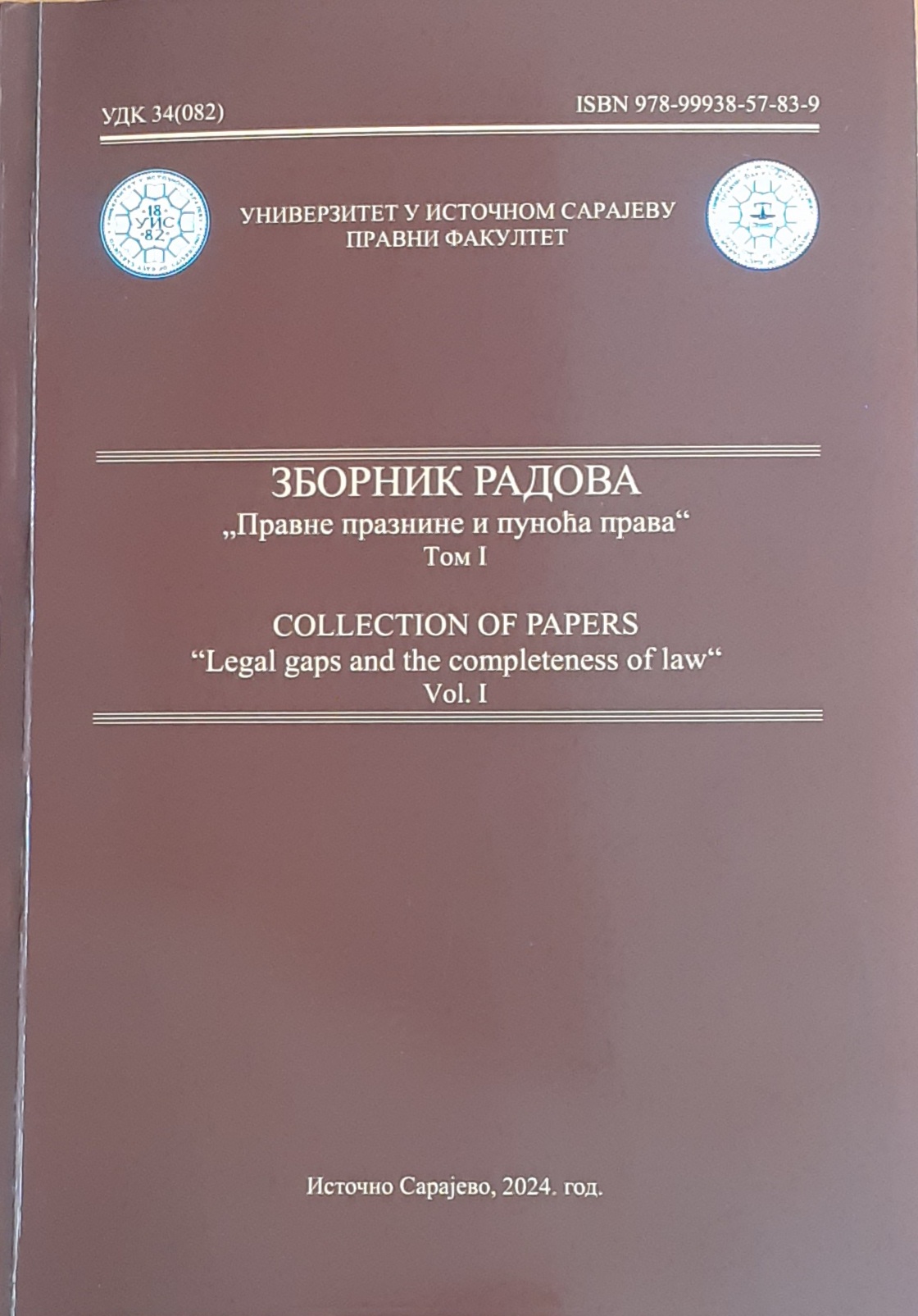Извршна власт у локалној самоуправи Републике Српске
Executive Authority in Local Self-Government of the Republic of Srpska
Author(s): Milan Pilipović
Subject(s): Law, Constitution, Jurisprudence, Constitutional Law, Governance, Politics and law
Published by: Правни факултет Универзитета у Источном Сарајеву
Keywords: Head/mayor; Municipality; Assembly; Executive power; Local self-government; Republic of Srpska;
Summary/Abstract: The Constitution of Bosnia and Herzegovina does not determine or regulate local self-government by any norm, so local self-government as a whole is under the jurisdiction of entities, which in their constitutions and laws contain the legal basis for its organization and functioning. This work focuses on the legal position of executive authorities in local self-government units in the Republic of Srpska. In the Republic of Srpska, local self-government units are municipalities and cities, in which the normative function is performed by municipal/city assembly, as a representative (political) body, while the executive function is performed by the head of the municipality and, in the city, the mayor. The paper analyzes the position of the head/mayor in the Republic of Srpska, from the aspect of the method of election, jurisdiction, and relationship to the assembly, with a focus on the possibility of his impeachment and the possible consequences that may arise for the local assembly. The paper aims to clarify the role of the head/mayor in the Republic of Srpska's local self-government system, based on the premise that local self-government units possesses a robust executive power. The main function of the mayor/head of the municipality is to represent the unit of local self-government, and as the holder of executive power, he is superior and responsible for the work of the entire city/municipal administration, which does not have the status of a municipal body but is an integral part of the executive power. The head/mayor of the municipality is elected by the citizens in general direct elections for a period of four years in accordance with the election regulations, in accordance with which his recall is carried out. Positive regulations do not limit the number of mandates held by the head/mayor, which is not a good solution. Instead, the number of mandates should be limited. The municipality's head/mayor has significant powers but is responsible for the legality of all acts he proposes to the assembly. In practice, there are problems in the relationship between the assembly and the head/mayor, primarily due to insufficient respect for the rights and responsibilities of the "other". This is a particular present phenomenon in cases of cohabitation, when the head/mayor and the assembly majority come from different and opposed political parties and coalitions. In such circumstances, disagreements and conflicts often arise between them. Only in the last decade, and even today, we have witnessed numerous cases of non-functioning local authorities, with councilors and mayors accusing each other of such a situation. The impeachment procedure of the chief was initiated twice in some local communities, a more frequent occurrence. According to the Law of Local Self-Government from 2016, the National Assembly can, at the proposal of the Government , dissolve the assembly, for one of several reasons , one of which is the unsuccessful impeachment of the chief and the dissolution of the local assembly are interrelated institutions. We point out that in relation to this issue , there is a certain inconsistency between two laws in the Republic of Srpska: the Election Law and the Law on Local Self-Government. It is necessary to harmonize and specify them with regard to the impeachment procedure, because in their current form they contain confused solutions in the procedural sense, i.e., they do not contain comprehensive and precise rules regarding the procedure for impeachment of head/mayor. Therefore, it is necessary to make changes to both laws in order to more precisely resolve the issue of impeaching leaders of local communities and dissolving local parliaments in the event of a failed impeachment. This change will also introduce more responsibility into the work of councilors in local parliaments. Keeping the current monocratic concept with a directly elected head/mayor would require and improvement of the normative framework. Another option is to alter the structure of the local of the local executive authority by incorporating a collegial executive body, which the city/municipality assembly would elect alongside the president. We should consider introducing the collegial executive body model into the local government system, which, in our opinion, would contribute to better functioning local government in the Republic of Srpska.
Book: Зборник радова "Правне празнине и пуноћа права" Том I
- Page Range: 150-177
- Page Count: 28
- Publication Year: 2024
- Language: Serbian
- Content File-PDF

